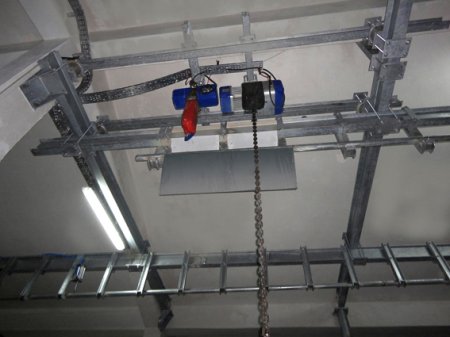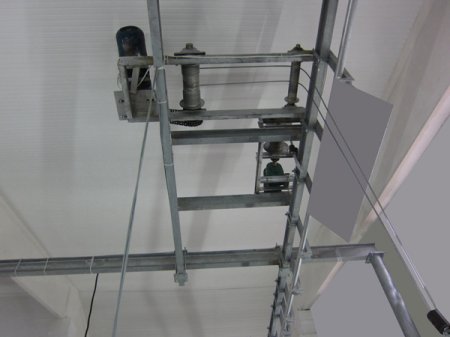FUNCTION
At the slaughter area, on the floor or within the cabin, the bodies slaughtered
are taken to the bleeding line with the help of hobbles suspended from feet or
ankles. There is an engine-reducer drum mechanism on the chassis connected to
the bleeding line. In cases where the chassis and the slaughtering area are not
available or the direction of the lay down cabin is not in conformity with the
bleeding line, ready-made chain hoists are used.
TECHNICAL CHARACTERISTICS
Ropes or chains used in hoists and winches are produced of material with 10mm
diameter. When the winch or hoist is not loaded, a magnetic brake is to be
coupled with the engine in order to be stopped and when stopped to avoid it to
run backwards.
The bleeding hook at the end of the chain or steel rope exceeds 10cm from the
bleeding line, it is to be stopped by the switches available. The carrying
process is achieved by mounting a special apparatus at the end of the chain or
rope. The chassis where the winch mechanism is connected is at the size of NPU
100 profile and at 600mm x 2000 mm and plated with hot submerged galvanize.
On the stand mounted on the slaughter line, an engine-reducer at the power of 10
HP and the lifting power of 2500 kg is to be mounted. The motion is transferted
to the connected drum through a gear. Or if there is no adequate space for
installing this mechanism, ready-made hoist with chain is to be used. The
lifting up speed of chain hoists or steel ropes is 22m/min.

